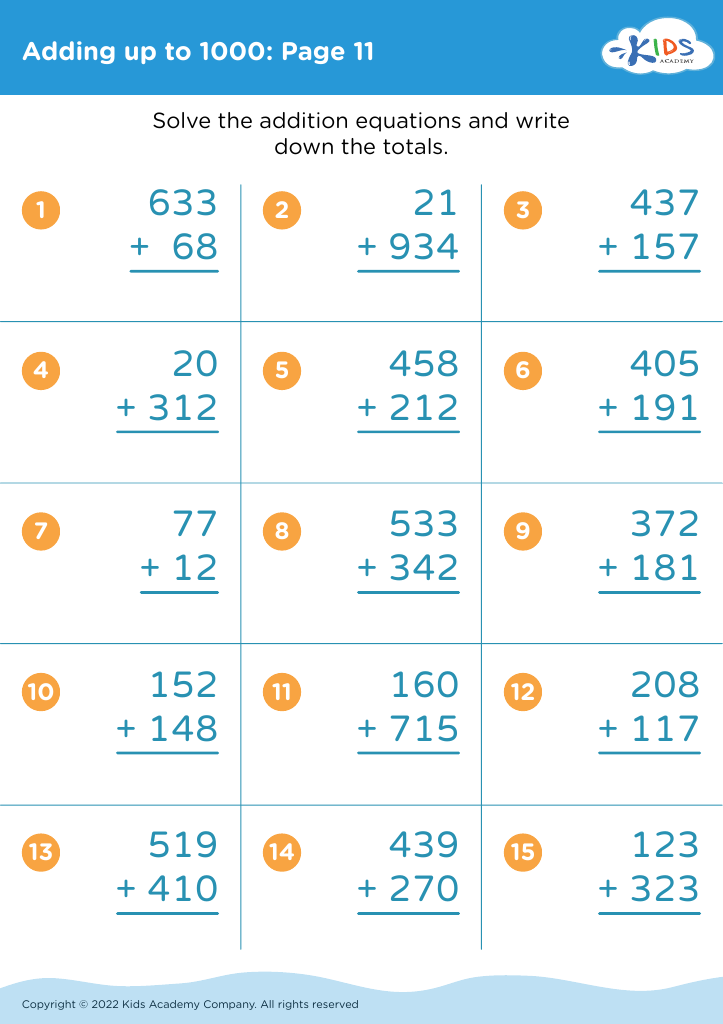Enhance problem-solving Addition Worksheets for Ages 5-7
3 filtered results
-
From - To
Unlock your child's potential with our Enhance Problem-Solving Addition Worksheets, designed specifically for ages 5-7. These engaging and interactive worksheets help young learners develop critical thinking skills while mastering addition. With a variety of challenges, from simple equations to intricate word problems, children will gain confidence in their math abilities. Our worksheets encourage practice and reinforce essential concepts through colorful illustrations and fun themes. Ideal for both classroom settings and at-home learning, these resources provide an enjoyable way for children to strengthen their problem-solving skills. Ignite a passion for math and set your child on the path to success!
Enhancing problem-solving skills in addition for children aged 5-7 is vital for multiple reasons. At this developmental stage, children are building foundational math skills that will set the groundwork for future academic success. Strong problem-solving abilities enable them to approach mathematical challenges with confidence, fostering a positive attitude towards learning.
Moreover, teaching problem-solving through addition encourages critical thinking and creative reasoning. It allows children to explore different strategies, enhancing their cognitive flexibility, which is essential in math as well as in real-world scenarios. Engaging them in problem-solving exercises can reveal their understanding and help identify areas where they may need additional support, ensuring personalized and effective learning.
Additionally, these skills contribute to lifelong learning habits. As children learn to tackle problems independently, they gain resilience and perseverance, qualities that extend beyond math and into everyday life. Parents and teachers play a pivotal role in nurturing these skills through interactive and stimulating activities, making math fun rather than daunting.
Ultimately, fostering strong problem-solving abilities in addition empowers children to become confident learners, well-prepared for future academic challenges, and capable of applying their skills to real-life situations. Investing in these skills now reaps benefits that extend far beyond the classroom.




















